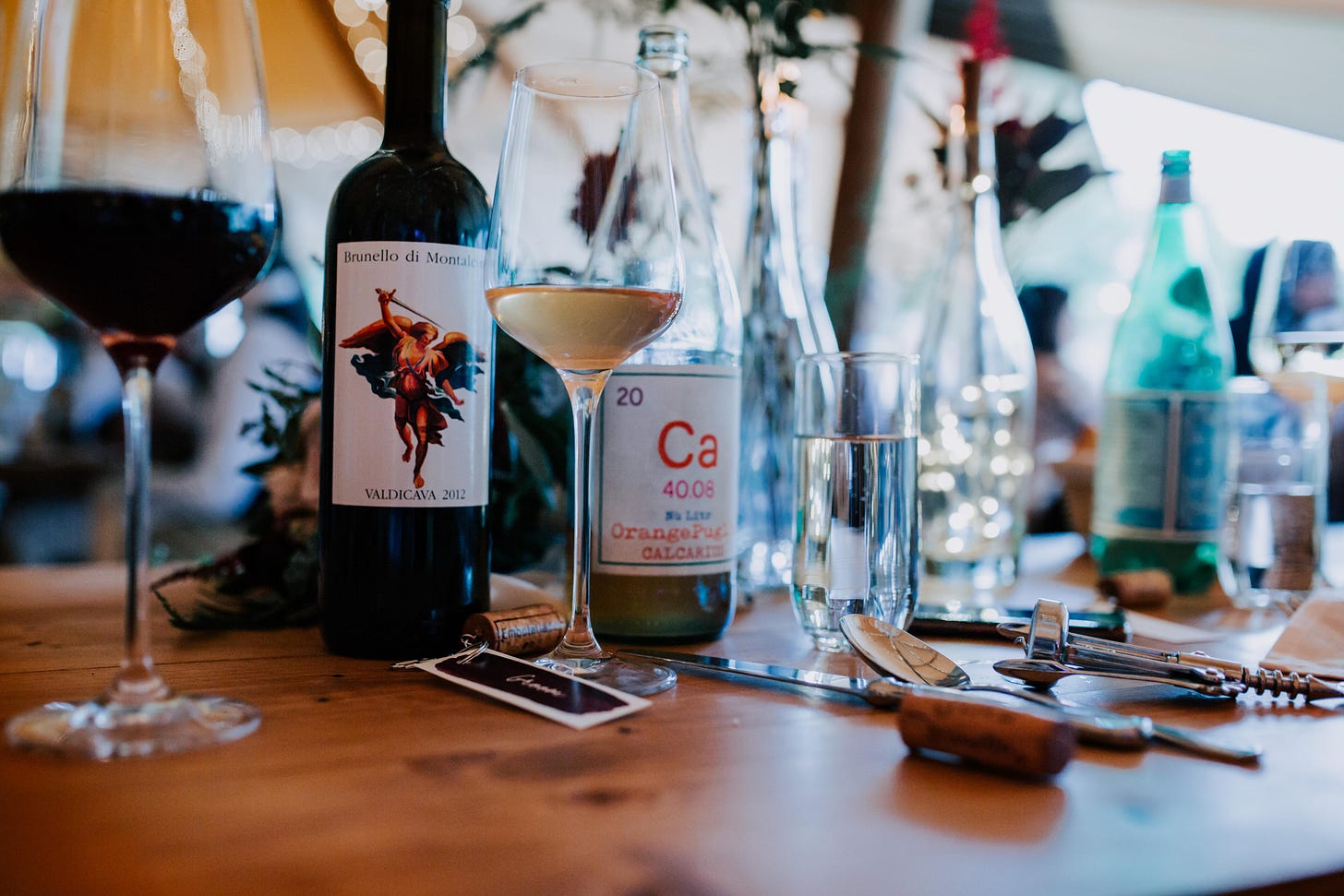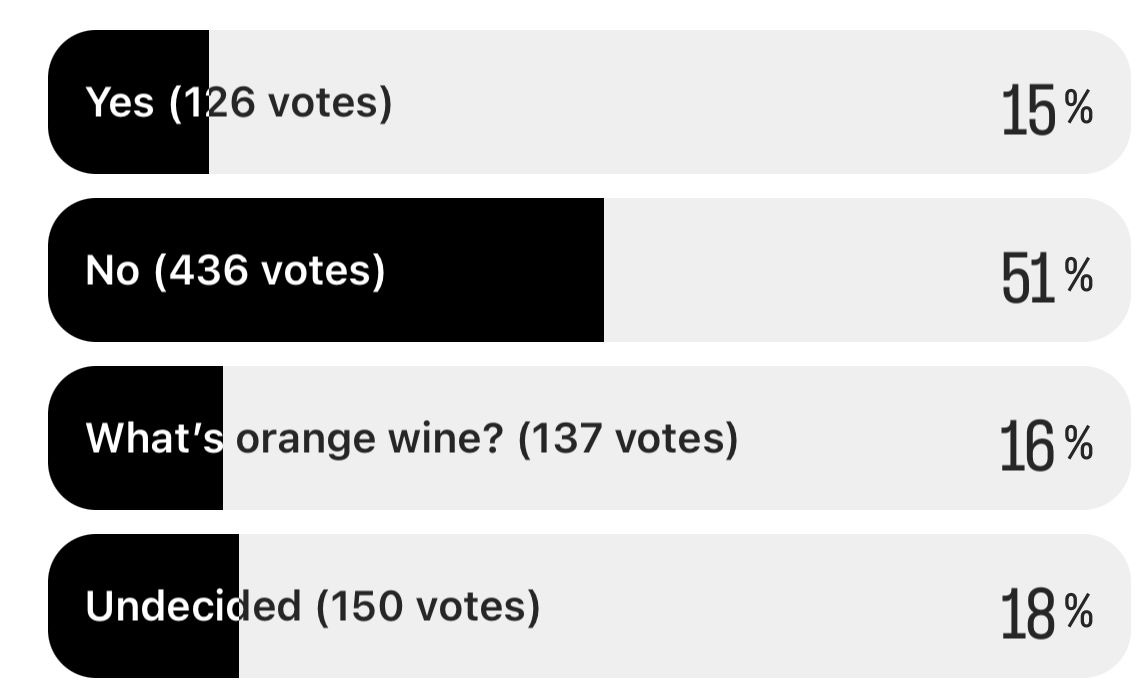Tradition. Reputation. Consistency.
What happens when you throw all of that out the window and start from scratch?
Enter Orange Wine.
What is Orange Wine?
Born from the ancient Georgian technique of fermenting grapes in qvevri amphorae, this style of wine has been around for 5,000 years. Only recently though has it made the journey into the mainstream.
It’s made by fermenting white grapes with their skins. This process is traditionally used for red wines. The wine absorbs tannins and pigments by allowing the grape skins and seeds to stay in contact with the juice, resulting in a deep amber or orange hue. The extended skin contact also imparts complex flavours and a richer texture, setting it apart from typical white wines.

The Hype Is Real
In the UK, sales have jumped 99% on Ocado year-on-year, and there’s been a whopping 437% month-on-month rise in London wine bars. This might be down to the fact some think it’s made from oranges, but its unique style and cool factor hooks most.
Wallet-Friendlier
Affordable options are popping up alongside the pricier bottles. An example of this is Romania’s Cramele Recaș offering decent value at £10.99. This democratisation means more can have a try without breaking the piggy bank, something that used to be a barrier to entry.
Aldi also had a confusing Specially Selected, Rosorange, Rosé wine go viral. But in an industry that needs clarity, this wine is anything but (another story for another time).
So What’s the Issue?
Critics point to its inconsistent production and lack of standards. The unique aromas (think bruised apple and dried apricot) and a denser, tannic texture can be divisive. Plus, the labels usually feature just a funky piece of artwork, which doesn't help knowing what's inside the bottle.
Instagram Poll
I asked my audience “Is orange wine the future?” and this was the result:
At first glance, especially considering it’s been judged by a wine-centric crowd, orange wine seems to have a long way to go to win people over. But actually, when you think about it, having one in seven people on board isn’t bad for a new player in a very established market.
Conclusion
I believe, within five years we'll see a dedicated orange wine section in supermarkets.
Just look at rosé's recent history; plantings increased by 25% between 2001 and 2021. Orange wine is starting from further back, but these days, trends can change much quicker.
If this recent popularity spike came out of nowhere, I’d be less confident. However, this trend has been steadily growing, fermenting away under the surface. Maybe I have a biased view, but having new styles and flavours to explore can’t be a bad thing, can it?
From a broader perspective, the wine world needs fresh products on the shelves, something that appeals to drinkers who are open to new experiences. Orange wine fits that bill perfectly.
It’s a new style for us to explore. While it’s not everyone’s cup of tea; like I learnt when I took my mum to buy a new laptop at the Apple Store, if you’re not open to it from the start, you probably won’t enjoy it.
Orange wine fills a unique gap in the market. I enjoy it about once every two months, usually on a Saturday evening when I’ve had something more serious the day before. I treat it as a wine that doesn’t need analysis; it just needs to be enjoyed, even if you have to kiss a few frogs before you find the prince or princess.
So to answer the title of this post: Is orange wine the future? The journey will be long but I think it’s going to be part of the rainbow of colours that makes up the future.
Cheers, Luke







I am a definite convert to orange wine. Recently tried an Austrian one, Funkstille it may have been called, and I thoroughly enjoyed it, so much so I have bought it regularly this summer already! ☺️